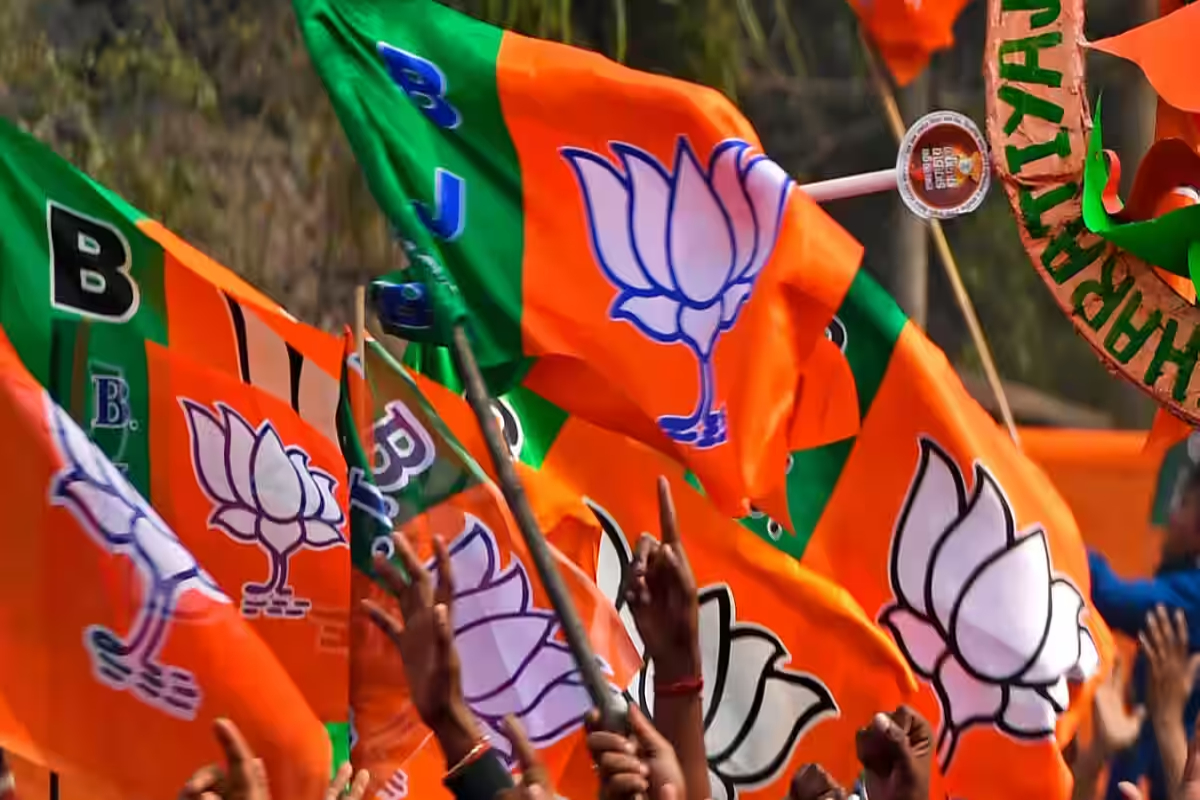NEW DELHI: Rajasthan has always been considered to be a stronghold of BJP and RSS, but lately the situation of BJP in two major states, Rajasthan and UP doesn’t seem to be very pleasant. On the one hand, where the resignation of Kirori Lal Meena, a senior minister of Rajasthan has created problem, on the other hand there is tussle in the party over the byelections to be held on 10 seats in Uttar Pradesh.
These are indications of internal factions in the BJP. These two states prevented the BJP from securing a majority on its own in the general elections. In Uttar Pradesh, the BJP secured 29 seats fewer than its previous tally of 62, and in Rajasthan, it lost 11 of the 25 seats. These 40 seats, if added to the BJP’s total of 240, would have brought the count to 280. Post the Lok Sabha results, the Opposition is focusing on these two Hindi belt states. If the Congress and Samajwadi Party alliance continues until the 2027 Assembly elections, the BJP’s challenges will intensify.
However, before Uttar Pradesh, several key states will hold elections, which will shape future politics. Elections in Haryana, Maharashtra, and Jharkhand are set for October-November this year, while Bihar and Delhi will follow next year. There are indications that Bihar’s Chief Minister Nitish Kumar might go for elections alongside Haryana and Maharashtra. Except for Delhi and Jharkhand, the BJP or its allies are in power in these states. Winning Haryana is crucial for the BJP, as it faces a direct contest with Congress there. A victory would allow the BJP to argue that Congress cannot win elections on its own, as Congress has struggled in direct contests in the Hindi belt. Therefore, the BJP will focus heavily on defeating Congress in Haryana.
For BJP to secure a victory, resolving internal conflicts within the states is crucial. The delay in selecting a national president, reports of factionalism from various states, and divergent statements from leaders are all contributing to these challenges. In Bihar, where the BJP runs a coalition government with JDU’s support, leaders like Ashwani Choubey discussing independent government formation are causing tensions. It’s imperative for the BJP leadership to manage these internal dynamics effectively. In fact, Rajasthan is facing the most concerning situation in the country.
Out of the 25 Lok Sabha seats, five winning MPs have been given significant roles in the Central government—Om Birla as the Speaker of the Lok Sabha, and Bhupendra Yadav, Gajendra Singh Shekhawat, Arjun Ram Meghwal, and Bhagirath Chaudhary as ministers.
Despite Prime Minister Narendra Modi appointing first-time MLA Bhajanlal Sharma as Chief Minister seven months ago, the state BJP is struggling. The sidelining of former Chief Minister Vasundhara Raje has left a void, with no emerging leader capable of uniting the state.
The party has failed to appoint a new state president for seven months, leading to dominance by bureaucrats. The recent resignation of minister Kirori Lal Meena, attributed to pressure politics and dissatisfaction with ministry allocation, has further destabilized the government. Questions are rising about BJP’s diminishing influence in Rajasthan following the poor performance in the Lok Sabha elections. Similar challenges are seen in Uttar Pradesh, where Chief Minister Yogi Adityanath’s opponents have gained momentum post-election. Key issues contributing to the poor performance in UP include concerns over reservation and internal factionalism.
The party faces upcoming by-elections on ten seats, testing the leadership of Prime Minister Modi and Yogi Adityanath. To navigate these challenges, BJP must swiftly appoint a national president, strengthen organizational structures in states, and address internal dissension to avoid further setbacks akin to those faced by the Congress.

